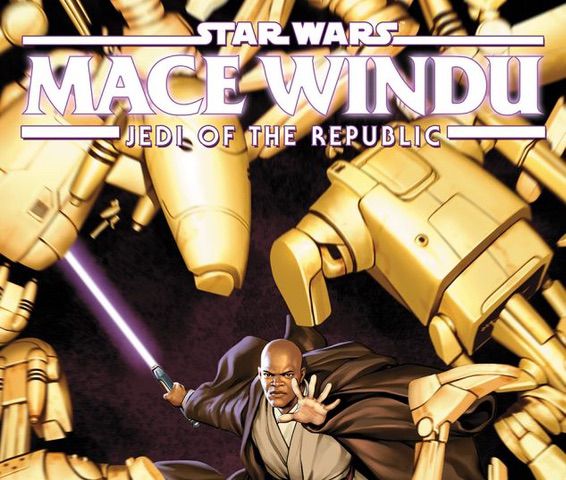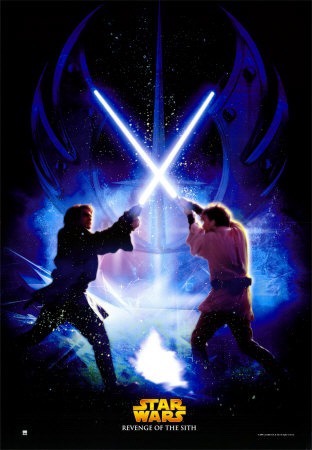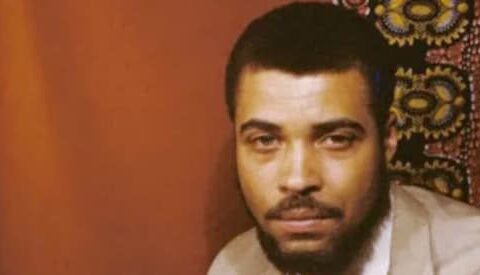I can’t overstate how pleased I was when I learnt that the Lucasfilm/Disney story group at Marvel was finally getting around to publishing some prequel-era books instead of just playing it safe with Original Trilogy and Sequel Trilogy material.
I know we did previously have the Anakin & Obi-Wan limited series; but the release of both the Darth Maul five-part series (reviewed here) and this Mace Windu series gave me some faith that the prequel era – arguably the richest era in terms of storytelling possibilities – was going to be respected and not sidelined.
A Mace Windu book in particular excited me as a prospect.
Mace Windu: Jedi of the Republic #1 starts wonderfully, with a scene between Mace and Ki-Adi Mundi in the Jedi Temple, discussing the Jedis’ new role as Generals in the Clone Wars.
It’s a perfectly presented scene, fully evoking the imagery and tone of the prequel movies. Giving Ki-Adi Mundi a guest spot put a smile on my face, as he is one of my favorite secondary characters in Star Wars. Moreover, their discussion about whether it’s a good idea for Jedi Masters to be leading troops and engaging in warfare is an interesting one.
This series is set shortly after the Battle of Geonosis (which, happily, is shown here on the first page, complete with Jango) and the onset of the Clone Wars. In this first chapter, we see Windu being sent by the Jedi Council to an Outer Rim world called Hissrich on a mission, for which he assembles a team of hand-picked Jedi to accompany him. Gladly, this team includes Kit Fisto, who actually gets a bunch of witty lines to boot.
Being a prequel-era book, we also get Trade Federation Battle Droids, which never ceases to put a smile on my face. I get nostalgic for the prequels any time I see Battle Droids and here is no exception. Like in the Clone Wars TV show, the Battle Droids here are also a good source for comic-relief and are played more for laughs than anything else.
We also meet AD-W4 – a ‘Mercenary Droid For Hire’.
Mace Windu #2 has Windu take on AD-W4, but generally isn’t especially compelling. Mace Windu #3 fares better, bringing in General Grievous and giving us some more background to the situation on Hissrich.
We also see serious fall-out between Windu and one of his fellow Jedi, taking us again into the conflict of interests among Jedi regarding the war. This is good stuff, in the realm of the Clone Wars series, exploring some of the discord that the conflict has opened up in the ranks of the Jedi Order.

Mace Windu #4 goes one better and provides us a glimpse of the past, specifically in the form of a young Windu as an apprentice on a mission with his master, Cyslin Myr. The story we get here is genuinely interesting, involving a charlatan who is twisting Jedi philosophies to exploit the vulnerable people of a plague-ridden society.
Young Mace’s rage at this affront shows us his tendency towards righteous anger, even at this early age: it is only his master’s presence that forces him to restrain himself and to think in terms of law rather than pure justice.
This is interesting, as it reverberates somewhat with the Windu we later see trying to kill Palpatine in Revenge of the Sith.
What’s also effective here is cutting back and forth between this story set in the past and the present narrative on Hissrich, where we see Windu engaged in a lightsaber fight – but more importantly, an ideological battle – with a fellow Jedi, as was established in the previous chapter.
The dialogue here – the back and forth argument – nicely explores the ideological rift that has opened up in the Jedi Order as a result of Jedi involvement in the war.
The same is true of Mace Windu #5, where the story wraps up. There’s some good stuff here, though nothing spectacular.
It’s good to see Windu let rip and use his Force powers to full effect in his fight with AD-W4. The situation on Hissrich is resolved here and then we move back to Coruscant and the Jedi Temple to close the story, which is where the interesting stuff is, as Prosset Dibs (the Jedi who turned against Windu) is brought before the Jedi Council in restraints to answer for his mutiny.
There’s something uneasy about seeing a Jedi Knight brought to the council as a prisoner.
There’s also something uneasy in seeing Prosset react so aggressively to Windu, even going as far as to boast that he looks forward to laughing over the Jedi Master’s corpse some day. This to me seemed excessive and a little unrealistic – even a disillusioned Jedi wouldn’t devolve into that kind of language or sentiment against a Jedi Master.
This sequence also suffers a little by having Yoda remain passive, barely involved or offering any opinions.
That said, Windu’s decision to treat Prosset relatively leniently at least helps this still feel like legitimate Jedi business. And I’m very relieved Prosset didn’t receive the ‘death penalty’ – as this would’ve wrecked the whole book for me and fatally undermined the whole idea of what the Jedi are supposed to be.
The fact that the death penalty was even mentioned bother me enough – though, in fairness, it is mentioned by Prosset and not by anyone on the Jedi Council.
In all, this is a slightly lackluster finale to what has been a generally good – but not outstanding – storyline. It has its charms though: Kit Fisto still gets some good one-liners too.
Another thing that lets Mace Windu #5 down a little too is that penciller Denys Cowan doesn’t do a great job with characters’ faces for a lot of this: there are images where Yoda’s face, for example, is barely recognisable, and even moments where Windu doesn’t look too good either (there’s a lackluster rendering of Palpatine too, where he looks more like Clint Eastwood).
All of that being said, Mace Windu: Jedi of the Republic is a good, worthwhile read for any fan, particularly fans of the prequel era. It touches on some good themes, offers some nice little adventures and Jedi action and also acts as a nice little Kit Fisto adventure too.
My main criticism is that it doesn’t really explore the character of Mace Windu as deeply or as interestingly as I would’ve liked. This five-book series could’ve been a real opportunity to flesh out Windu and probe more into his psychology and into his history. Maybe another time.




